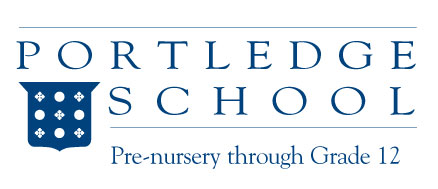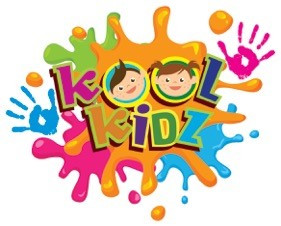In what grade do you take the ACT or SAT? If your teenager is heading into his junior year of high school, he will likely be taking one of these exams this school year. These college entrance exams are more alike than different, but there is still some confusion about which one teens should take. College prep experts share the differences between them and the characteristics of students that will do better on one versus the other.
Both tests are operated by nonprofit organizations, follow a roughly similar format, and serve the same purpose: “It’s to try to estimate your potential college readiness,” says Tony DiGiacomo, Ph.D., of Novella Prep, an academic advising, college planning, standardized test prep, and tutoring company in Westchester and Fairfield counties. That being the case, could a child possibly score higher on one or the other? Is it a question even worth asking?
The answer, say the people who know best, is yes. Though both tests assess scholastic skills, there are subtle differences between the two. We asked experts to share their thoughts and observations on the ACT vs. SAT and their design; use their insights to your child’s advantage.
RELATED: A Grade-by-Grade Timeline to Prepare for College
Your teen should take the SAT if he...
The SAT is the older of the two tests, first administered to high school students in 1926. (Its letters, which originally stood for Scholastic Aptitude Test, now merely connote the brand.) But just because the SAT has a more extensive history, is it the better test for your kid? The answer: It depends. Your child may do better on the SAT if he…
…attends a public school. Public schools follow the Common Core, a set of standards for teaching and testing math and English. And as it happens, “the person who revamped the SAT [most recently] was one of the key architects behind the Common Core curriculum,” says Greg Kaplan, a college counselor, author of Earning Admission and creator of CollegePath, a free and premium app that guides college-bound students with advice tailored to their interests and school goals. It should be no surprise, then, that the SAT more closely covers what public-school kids may learn in class.
…does well with evidence-based questions. “One of the differences is the SAT allegedly gives you a little more information to use to answer some of their verbal questions,” Dr. DiGiacomo says. “Let’s say there’s a passage and a question—the ACT will tend to just ask the question, such as ‘the main character was courageous because…’ But the SAT will give you a line to look it up. They are pushing evidence-based textual understanding, the idea of being able to look it up and find it.”
…has a rich vocabulary. The often-perplexing analogy questions you may remember from your own days taking the SAT are a thing of the past. The reason? “This privileged understanding of vocabulary words wasn’t a way to understand a student’s skill level,” Dr. DiGiacomo says. The SAT creators “have worked very hard to de-emphasize this. If you grow up in a lower-income household, you may not hear the same vocabulary in the home. Even if you go to the same school as a wealthier student, your overall exposure to vocabulary may be limited. But your ability to interpret and defend an argument are learned in school.” That said, the SAT “does a bit more vocabulary [than the ACT] still,” Dr. DiGiacomo notes.
…is a big reader and can easily stay focused. “The reading comprehension portion on the SAT is much trickier,” Kaplan shares, so a kid who has a superior ability to pay attention to written material may distinguish himself on the SAT: “They take very boring, dense passages and use them as a pressure point to see who can get through it.”
Get the Best Family Activities
Sent to You Weekly!
…hasn’t yet taken Algebra 2 or trigonometry. Both the SAT and the ACT cover this material, Kaplan says, “but the SAT is a more even playing field. The questions are more complex, and they require more creative thinking than the ACT questions. If I have a student who is a year behind in math I tend to recommend the SAT. It’s easier to improvise.”
Your teen should take the ACT if she...
The ACT (its initials originally stood for American College Testing but now, like the SAT, just signify the brand) is the newer standardized test, first offered in 1959 as a competitor to the SAT. Your child may do better on the ACT if she…
…tends to work quickly. If she prides herself on her ability to get through material speedily, and prefers doing so to poring over questions at length, the ACT may suit her. “The SAT offers thirty-three percent more time per question than the ACT,” Kaplan says. But there’s a catch, he adds: “The flip slide of that coin is that the SAT questions are more complex and may require more thought and analysis.”
…excels in science. The ACT has a discrete section called science. But, Dr. DiGiacomo adds, “the SAT is offering a science subscore now.” While the score isn’t based on a science section per se, it’s based on similar questions to the ACT science section—“math questions using vocabulary that implies an understanding of sciences, such as orbits and velocity. But they are really at the end of the day math questions,” he explains.
…is math-minded. “The ACT does cover a little more content than the SAT in mathematics,” Dr. DiGiacomo says—he tracks these subtle variations by creating a matrix of topical differences between the tests. If your child has studied math broadly and extensively, he may be better prepared for the multitude of math topics on the ACT.
…likes the security of having a calculator by her side. “The SAT [math] has two parts—calculator and no calculator,” Dr. DiGiacomo says. By contrast, “the ACT lets you use the calculator for the entire test,” he notes. But don’t automatically assume this will always be the case: “Any given year, the College Board [which makes the SAT] and the ACT can change their policy,” he cautions.
…is a stickler for grammar. “The ACT is a little more focused on grammar, punctuation, and syntax,” Dr. DiGiacomo says. “The SAT might focus more on a student’s writing style and use of evidence.”
The Power of Personal Preference
While all the insights listed here can be helpful, nothing will inform your child better than first-hand experience. “I recommend for all students to take a real, released practice exam for both the ACT and the SAT. That way you’re comparing apples to apples,” Kaplan says. Use a convergence chart—there are many available on the web—to determine on which test your child scored higher.
“Eighty percent of students have a clear-cut preference,” Kaplan continues. “That difference is worth up to one hundred points right out of the gate.” And rest assured that colleges are fine with that: “There is not one college in the U.S. that prefers one [test] over the other,” Kaplan says.
No matter which test your child decides to go with, Kaplan recommends she start reading either The Economist or The New Yorker. “They actually pull passages from those magazines in the reading tests,” he says. “Get familiar with the complexity of the language and the structure. Sometimes students like to prepare in a way that doesn’t involve a workbook. When you actually are studying but you don’t feel like it, I think that’s a win.” By making an informed choice, and properly preparing, your child can get a score that truly adds up to success.





